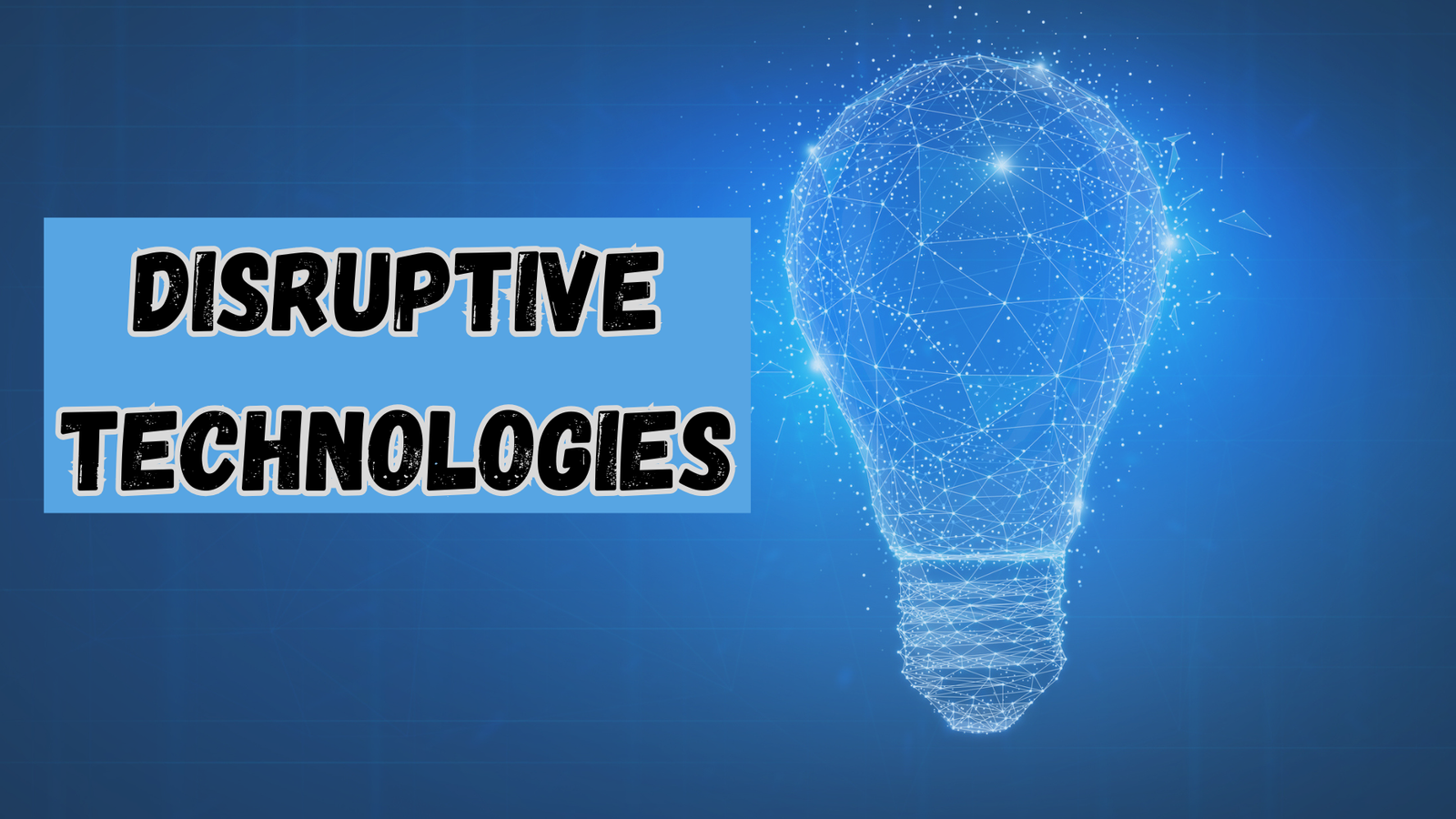In today rapidly evolving world disruptive technologies are transforming industries economies and daily life in ways we never imagined these groundbreaking innovations such as artificial intelligence block chain, biotechnology and renewable energy are not just improving existing systems but completely reshaping them they create new opportunities solve global challenges and redefine how we interact with the world from revolutionizing healthcare with AI-driven diagnostics to making financial transactions more secure through block chain these technologies are driving progress at an unprecedented pace beyond convenience disruptive technologies have the potential to tackle.
Advancements in renewable energy are reducing our dependence on fossil fuels while automation is enhancing productivity across industries with rapid change comes challenges ethical concerns job displacement and the need for regulation must be addressed to ensure these technologies benefit everyone as we move forward embracing innovation while considering its broader impact is crucial by leveraging these advancements responsibly we can create a more sustainable efficient and inclusive future for all disruptive technologies are not just shaping the world they are redefining what is possible.
Artificial Intelligence (AI) and Automation:
AI is revolutionizing industries by enabling machines to learn adapt and perform tasks that traditionally required human intelligence from healthcare to finance AI-powered systems enhance efficiency accuracy and decision-making capabilities for example, AI-driven diagnostics are improving disease detection rates IBM Watson Health is being used in hospitals worldwide to analyze medical data and assist doctors in diagnosing illnesses like cancer with unprecedented precision
AI-powered chat bots and virtual assistants streamline customer service reducing costs and enhancing user experience automation driven by AI is also transforming manufacturing companies like Tesla use robotics and AI in their production lines to improve efficiency and minimize human error while automation boosts productivity it also raises concerns about job displacement underscoring the need for policies that ensure workforce adaptability.
Renewable Energy and Sustainability:
With climate change posing a major global threat disruptive technologies in renewable energy are crucial for a sustainable future innovations in solar wind and energy storage solutions are making clean energy more accessible and efficient for instance Tesla solar roof and battery storage systems enable homes and businesses to generate and store their own electricity reducing dependence on fossil fuels in developing nations companies like M-KOPA provide solar power solutions to off-grid communities transforming lives by bringing electricity to remote areas advancements in nuclear fusion such as those pursued by ITER and other research institutions, hold the promise of virtually limitless clean energy potentially revolutionizing the global energy landscape.
Biotechnology and Healthcare Innovations:
Biotechnology has revolutionized healthcare bringing groundbreaking innovations that improve lives and make treatments more effective with advancements in genetic engineering personalized medicine and biopharmaceuticals scientists can now develop targeted therapies for various diseases including cancer genetic disorders and infectious diseases one of the most remarkable breakthroughs is gene editing, particularly CRISPR technology which allows scientists to modify DNA with precision offering potential cures for inherited conditions biotechnology has played a crucial role in vaccine development as seen with vaccines that were rapidly created to combat the COVID-19 pandemic.
Beyond medicine biotechnology has also improved diagnostics making it easier to detect diseases early through advanced lab tests and wearable health devices another exciting area is regenerative medicine where stem cell research is paving the way for tissue engineering and organ regeneration offering hope to patients in need of transplants artificial intelligence and biotechnology are merging to enhance drug discovery reduce treatment costs and create more efficient healthcare solutions as biotechnology continues to evolve it holds the promise of transforming global healthcare making treatments.
Space Exploration and Commercialization:
Space exploration and commercialization have transformed the way humanity views the universe and it potential space exploration was limited to government agencies like NASA and but today private companies such as Space X Blue Origin and Virgin Galactic are playing a major role these companies are making space travel more accessible and cost-effective by developing reusable rockets and innovative technologies the commercialization of space has opened doors for various industries including satellite communication space tourism and asteroid mining businesses and investors.
While space exploration continues to expand our scientific knowledge and understanding of the cosmos commercialization is making it more practical and sustainable such as high costs safety concerns and space debris must be addressed to ensure long-term success as technology advances the dream of humans living and working in space is becoming more realistic paving the way for future generations to explore beyond our planet.
Conclusion:
Disruptive technologies are reshaping the world solving complex challenges and creating new opportunities from AI and block chain to renewable energy and space exploration these innovations have the power to drive progress on a global scale their widespread adoption also presents challenges including ethical considerations regulatory frameworks and the need for reskilling workforces as society embraces these disruptions it is essential to ensure that technological advancements benefit all fostering a more inclusive and sustainable future.
FAQS:
1. What are disruptive technologies?
Disruptive technologies are innovations that significantly alter industries markets or society by replacing or transforming existing solutions examples include artificial intelligence block chain quantum computing and renewable energy advancements.
2. How do disruptive technologies impact global industries?
They drive efficiency reduce costs create new business models and enhance accessibility AI is revolutionizing healthcare diagnostics while block chain is transforming finance and supply chain transparency.
3. What are some examples of disruptive technologies with global impact?
Artificial Intelligence (AI): Automates tasks enhances decision-making and improves efficiency.
Block chain: Secures transactions decentralizes finance and increases transparency.
Quantum Computing: Enables complex problem-solving beyond traditional computing capabilities.
Renewable Energy Technologies: Reduce reliance on fossil fuels and combat climate change.
Biotechnology: Advances medicine, agriculture, and genetic engineering.
4. What challenges do disruptive technologies face?
Adoption barriers include regulatory issues ethical concerns infrastructure limitations cyber security risks and resistance to change in traditional industries.
5. How can businesses and individuals prepare for disruptive technologies?
Staying informed investing in continuous learning adopting flexible business strategies and embracing innovation are key ways to adapt.



